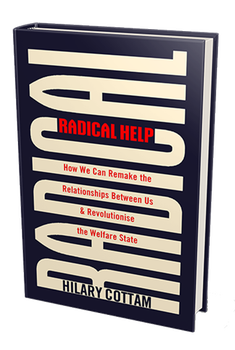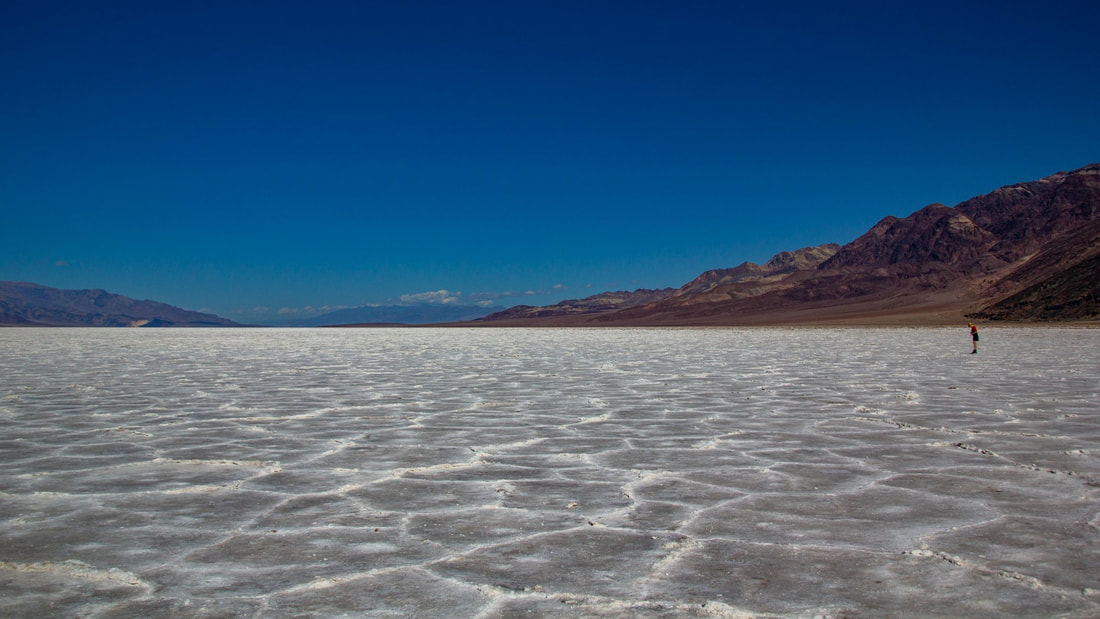Scott AndersonJeremiah 31:16 † Psalm 118:1-2, 14-24 † Acts 1:34-43 † Matthew 28:1-10
Two phrases catch my attention in these days of pandemic and social isolating. Two phrases seem especially relevant as we find ourselves a month into a disruptive reality most of us have never experienced before. The first is this: “Do not be afraid.” It is the message given by the angel—an other-worldly being who apparently looks like lightning in a jacket of snow and shows up just as a massive earthquake hits. Just to the side you have a couple of military guards laying there, by all appearances dead. I mean, the advice sounds a little unnecessary, doesn’t it? What could they possible be afraid of?
0 Comments
Scott Anderson This is Hilary Cottam in a TED talk from 2015.[i] She’s a social entrepreneur whose been thinking much of her life about how we solve some of these deep and complex social problems that have been perplexing us for some time now. She has a new book out, called Radical Help[ii] that takes a deep dive into the welfare state and how we might remake it. As you can tell, she’s doing her work in Great Britain, and has spent most of her life in Europe and Africa exploring these questions. But I think her work speaks to our own experience in the states as well, and to the needs for many of our institutions to adapt to changing realities. In her presentation, Cottam goes on to provide a pretty stark picture of how the system as it currently is does not serve Ella well or others in similar circumstances, but may, in fact, work to keep them imprisoned in a cycle of despair, even as the people and the institutions they serve were and continue to be well-intentioned. Scott AndersonOn average, Death Valley gets two inches of rain a year. Two inches. There are two major mountain ranges—the Panamint Range, pictured here, and the Sierra Nevadas beyond them to the West that trap weather systems that would otherwise drop precipitation from the Pacific, making it one of the driest places on earth. Yet it is fair to say that Death Valley, one of the driest places on earth, has been shaped by water. Well, water and tectonics.
Scott Anderson Exodus 20:1-17 † Psalm 19 † Corinthians 1:18-25 † John 2:13-22
Nikolas Cruz was not mentally ill. Let’s say it more accurately: any mental illness Nikolas Cruz had, under current law, would not have qualified as justification to taking him off the streets or taking away his guns. The 19-year old shooter who walked into Marjorie Stoneman Douglas High School and killed 17 people, who on Valentine’s Day denied these souls and their web of family and friends and loves their constitutional right to life, liberty, and the pursuit of happiness, who on Ash Wednesday added meaning to the affirmation that you are dust and to dust you shall return, does not appear to have had a mental illness that would or should have ever led to his commitment into an institution. This is not to say he wasn’t deeply troubled. He had a long history of violent and disturbing behavior that gave light to a sea of unsettledness, violence and despair. And in November of last year, all of this rage was multiplied exponentially when he lost his mother. Many had tried to intervene. “His mother made a major push to have him lead a normal life,” said Paul Gold, a neighbor of the Cruz family who remained in touch with Nikolas up until his mother’s funeral in November. “But toward the end of her life, she really had given up,” he noted [i] All of these red flags. All of these warning signs. Nicholas Cruz was not mentally ill. He was out of control, and he was in mourning after losing his mom November 1st. Gold said he believes a host of factors contributed to Cruz’s instability: his mental illness, the bullying, an obsession with violent video games, his mother dying, no safety net. “None of this is an excuse for the horrible, horrible thing that he did,” Gold said. “None of it — but if you wanted to create a kid who was a serial killer, this is how you would do it.”[ii] Scott Anderson Isaiah 61:10-62:3 † Psalm 148 † Galatians 4:4-7 † Luke 2:22-40
“The old man held the boy, but the boy held the old man.” The old antiphon, the poetic couplet the church has sung from ancient times during the feast of Simeon captures it perfectly, doesn’t it? The old man held the boy, but the boy held the old man. The old man Simeon, who has spent his waning years waiting for a Messiah, for a promise of better times for a people who will outlast him, of God’s goodness and justice, of peace and liberty and vitality once again being unleashed on the world was waiting on the temple grounds, waiting for God to show up. No doubt he had been there many other days waiting. Most days. Watching, praying, expecting. But on this day when that poor couple walked with their new baby and their meager offering into the temple to have their child marked as God’s and blessed, Simeon knew at once that the promise lay before him in their arms. The Spirit told him Luke tells us—three times to make sure we see the connection, hear the proof. And he reached out and took the child and cradled him, and his heart was full. And as so many actors do in Luke, his heart spilled out in song. The old man held the boy, but the boy held the old man. Scott AndersonExodus 33:12-23 † Psalm 99 † 1 Thessalonians 1:1-10 † Matthew 22:15-22
Orchestral strings playing, timpani chimes in, a harp glistens. I think, the theme from the Hunger Games, but it is actually the overture to the 1962 film Lawrence of Arabia.[i] And over the music, a voice: “We begin with a story of tribute to a great and dominant empire. Imagine yourself an emissary from a far-off province. What would you offer Caesar in devotion? Something that says loyalty and fealty and also the best features of your home? … Now, what if Caesar was Jeff Bezos and the empire was called Amazon?”[ii] That intro this week to the segment on the NPR news show The Takeaway caught my attention. It was the day that homework was due for all suitors to Amazon’s second headquarters, or “HQ2.” It brought me to today’s text, of course. Render to Caesar what is Caesars; render to God what is God’s. It was a clever tease which led to an examination of the give and take, the tensions and challenges that arise in our current culture of complex needs and competing loyalties. We need Amazon. We love Amazon. I am a Prime member, I confess. They have transformed Seattle, perhaps more than Microsoft or Boeing before it, or before them, the European settlers that stripped thousands of acres of ancient forest in only a few years and bulldozed tall hills in a few more to tame this metropolis. And yet, according to some examinations, being HQ1 is something of a mixed bag. The effect of Amazon’s rapid growth has been called a prosperity bomb with a wide blast zone. Amazon’s story began in the midst of the Great Recession when unemployment was 10% and people were crying out for jobs. The benefits have been widely touted to potential suitors of HQ2: the rapid addition of thousands of high-paying, six-figure jobs, the transformation of the economy, massive infrastructure investment. Scott AndersonExodus 20:1-4, 7-9, 12-20 † Psalm 19 † Philippians 3:4b-14 † Matthew 21:33-46
Am I the only one who thinks that this landowner is a little naïve? I mean, what did you really think they would do with the son, given what they had done in the past with the landowner’s other representatives? Killed one. Stoned another. Did the same to the next group. Past performance may not be an indicator of future success, but it does provide some meaningful information. Right? That’s what I was thinking about this week as we watched another act of “pure evil,” as our president put it, another heartbreaking tragedy, unfold in Las Vegas. By now we know the drill so well. There is nothing new under the sun. This is perhaps the most devastating aspect of it for those of us disconnected from the real life toll—it seems beyond our control, so rooted and rutted that we no longer expect anything to change. We feel helpless. It is such a part of the landscape—as established as Mt. Rainier, as rooted as an ancient Cedar. Everybody has their role to play. There are those who will predictably resist—"now is not the time to debate gun laws,” comes the refrain; “it’s a time to come together.” Sure, with just about any other kind of tragedy, the response is different. This one seems to have its own rules. Scott AndersonGenesis 45:1-15 † Psalm 33 † Romans 11:1-2a, 29-32 † Matthew 15:10-28
Mother Teresa used to say, “If you want to change the world, go home and love your family.” I don’t know what you think of this. It strikes me at first, like a claim from a more innocent time. It seems inadequate in the face of the recently amplified voices of white supremacy, of oppression and intolerance and hatred—perhaps most unnervingly, from the occupant of the White House whose role is supposedly to speak with a moral voice, to represent all the people, not an intolerant few. It seems inadequate in the echo of extremist voices reviving the language of racial purity and ethnic intolerance. It seems inadequate given these beliefs led to the systematic murder of 7 million Jews and people of color by the Nazi Party of Germany—of people with physical and mental disabilities, and of lesbians and gays and transgendered people who were only trying to be their true selves. It seems inadequate given the long history of slavery, of overt and covert oppression and malicious intimidation of people of African ancestry these past 400 years. It seems inadequate given the ebb and flow of government policies over the life of our troubled nation that have further privileged the interests of the already protected insiders. Perhaps a quick reminder of legislative history in the United States might help us to keep things in context here:[i] Scott AndersonGenesis 28:10-19a † Psalms 139:1-12, 23-24 † Romans 8:12-25 † Matthew 24-30, 36-43
It is important for us to remember who this Jacob was. First of all, he was a “heel-grabber”—a usurper, an ambitious, despicable, cheat. He exploits his brother’s hunger for his own gain. He defrauds his brother of his rightful inheritance, and deceives their father to seal the deal. If anyone is a weed, this is the guy. And for the first time in the story about him, we find him alone. We shouldn’t be surprised. He’s now on the run from his twin Esau. He’s burned all of his bridges. And now, with nothing but a rock for a pillow, his hardness and his vulnerability are on full display, and, in the deathly silence under the vast stars of the sky, he is surely confronted with his own character. But there’s more on display as well. There is this place. Six times, the place is mentioned—so often in this short story that it is awkward, or significant. Place, and with it, earth and land five times, and stone three times. And after his dream when the heavens open and the chasm between heaven and earth is closed, and God shows up with that promise once again, Jacob doesn’t miss the significance of what is hiding in plain sight. Scott AndersonLamentations 1:1 - 6 • Lamentations 3: 19 - 26 • 2 Timothy 1:1-14 • Luke 17:5-10
How many of you have junk drawers at home? What kind of things do you have in them? Why do you have them? I love the section heading at the beginning of Luke 17. It isn’t actually a part of the original text. It was given by the editors for the NRSV—that’s the version of the bible that we typically use, the one in your pew Bibles. Did you happen to notice it? “Some sayings of Jesus.” Isn’t that great? We may have just found ourselves in the junk drawer of Luke. Here we have a few really good sayings of Jesus that Luke didn’t want to lose, so he just threw them all right here so that he could find them later. |
St. Andrew SermonsCategories
All
|



 RSS Feed
RSS Feed